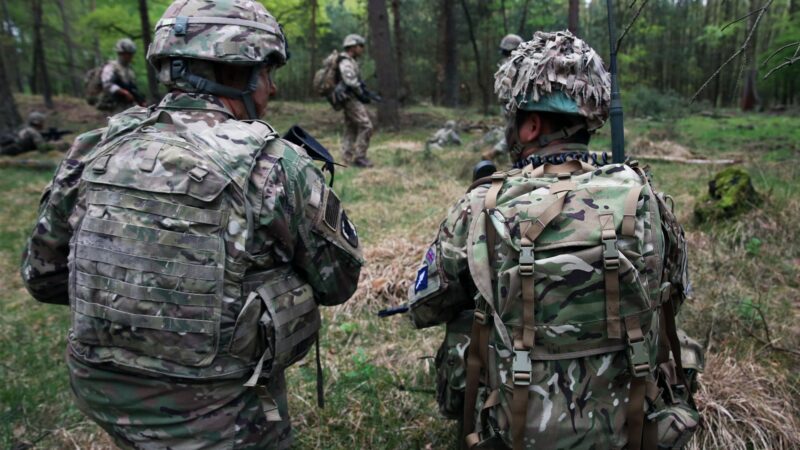The military has a huge problem with its culture and justice system

Natalie Bennett is a former leader of the Green Party of England and Wales and now sits in the House of Lords
The UK military has a target that by 2030, 30 per cent of recruits should be women, a huge increase from the current figure of around 12 per cent. Yet the military, it is clear, has a huge and continuing problem with its culture and justice system.
A report from whistle-blowers to Parliament’s Defence Committee has just revealed – again – a damning verdict on the level of sexual abuse against women in the forces and failure to deal with it appropriately.
A team of uniformed and civilian clinicians reported how female members continued to experience rape, sexual assault and harassment by their male colleagues. In addition to fears of career regression, the medics said servicewomen were “reluctant to report or seek help” because they believed that “nothing will be done” by internal investigation processes.
In one case presented in the report, a junior servicewomen was found to have been raped by a male colleague from an “elite unit”. When persuaded by her GP to the report the violent incident, she was later discouraged from doing so by the Chain of Command – as it was deemed “too important for the career of the rapist and the elite unit he served in, to keep him in place”. The victim was later medically discharged against her will, left vulnerable and without adequate mental health support.
Failures were all too evident in the tragic case of 21-year-old Sandhurst cadet Olivia Perks, who a coroner concluded was the victim of a “complete breakdown of welfare support”. Ofsted has concluded too that young (16-18-year-old) female recruits “do not feel safe” at the privatised QPD Forces Preparation College Doncaster.
Testimony to the Select Committee speaks to the lack of rape and sexual assault convictions in the military courts. In 2017, only two rape cases resulted in conviction out of a total of 48 cases which reached court martial – representing a conviction rate of 4 per cent. The problem is even acknowledged by military seniors themselves; in his 2019 review, Air Chief Marshal Michael Wigston concluded that “an unacceptable level of inappropriate behaviour persists”.
One major structural problem is clearly a figure in the low conviction rates in the military: there is no civilian oversight throughout the whole-process. Before 2006, the Service Police had no jurisdiction over rape allegations within the military; it was left to the civilian police forces and the Crown Prosecution Service to investigate and take cases to court.
The decision to give the Service Police the ability to investigate serious offences such as rape, has generated two key problems. First, it has erased any sense of true independence in the investigative process. Second, it has meant that the deep knowledge and experience which civilian police forces have in rape cases are not drawn on.
Given the fact that service personnel move posts every two or three years, there is no dedicated or permanent team which solely focuses on sexual abuse cases in the Service Police.
In a 2017 commissioned review by the Ministry of Defence, it was recommended that “Court Martial jurisdiction should no longer include murder, manslaughter and rape”. Yet the government and the Defence Secretary rejected the recommendation outright the very same day when the review was published. It is unclear why this was the case, but the Defence Secretary’s dismissal does nothing for the traumatised victims that are still waiting for justice.
The US, where the issue of civilian oversight on criminal behaviour in the military has always faced vehement objection by military leaders and politicians, has recently shifted its stance. In what is viewed in the US as a momentous and seismic shift, Senator Kirsten E. Gillibrand’s drive for military justice reform has now changed how rape is investigated; an independent Special Trial Counsels will now have jurisdiction in such serious cases. Britain must follow this example and truly deliver for victimised servicewomen.
However, that is only part of the solution. A robust preventative strategy to eradicate the culture which engenders misbehaviour and sexism in the military has to be implemented. This must include a training program that teaches recruits the do’s and don’ts of workplace behaviour. More importantly, it needs a bystander program – similarly to the one introduced by Sweden’s military – that changes the culture surrounding how servicepeople react to and report cases of sexual abuse when they see it.
The labour shortages that are seen across our society are affecting the armed forces also – and that 30 per cent female recruitment target is seen as crucial to tackling the problem, but clearly much needs to change to make the forces safe for any recruit.
The Green Party’s focus on peace and security acknowledges that there will be many new roles for the armed forces in our age of shocks, from providing support in climate-related disasters and domestic crises (as during the Covid pandemic), to dealing with cyber and space warfare and peacebuilding.
That demands real changes in culture and approach – and tackling women’s safety within the forces fits within that broader range of demands. Stopping the recruitment of 16- and 17-year-olds, as the Green Party has long called for, would be another important step in the right direction.
To reach hundreds of thousands of new readers we need to grow our donor base substantially.
That's why in 2024, we are seeking to generate 150 additional regular donors to support Left Foot Forward's work.
We still need another 117 people to donate to hit the target. You can help. Donate today.



